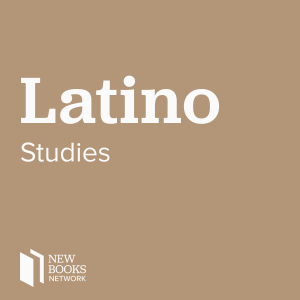
Kevin Escudero, "Organizing While Undocumented: Immigrant Youth’s Political Activism Under the Law" (NYU Press, 2020)
 2022-09-23
2022-09-23
Download
Right click and do "save link as"
Undocumented youth activists are at the forefront of the present-day immigrant rights movement. This is especially true surrounding the activism of the recent SCOTUS decision on DACA issued on June 18, 2020. Professor Kevin Escudero’s book, Organizing While Undocumented: Immigrant Youth’s Political Activism Under the Law (New York University Press, 2020), depicts just how undocumented immigrant youth have utilized their identities for political action between 2010-2019.
By developing what he calls the “Identity Mobilization Model,” Escudero studies the intersectional collective identity formation of undocumented immigrant communities by focusing on how micro-level processes interact with macro-level legal structures.
Escudero uses intimate narrative accounts of individual experiences, community gatherings, and organizer meetings to show how undocumented immigrant youth activists emphasized the heterogeneity of the movement while also forming coalitions with other movements.
Escudero drew on ethnographic participant observation and fifty-one in-depth interviews with undocumented youth activists in San Francisco, Chicago, and New York. The book covers three subgroups within the immigrant rights movement: undocumented Asian activists, undocumented queer activists, and formerly undocumented activists.
Each chapter focuses on one of the three subgroups and details how the subgroup shared community knowledge, how they leveraged their intersectional movement identity, and what he observed as high-stakes allyship.
Organizing While Undocumented shows how undocumented immigrants “have organized powerful countermobilizations to resist the stigma of illegality”. Further, Escudero carefully describes how undocumented youth form an oppositional consciousness informed by articulations of nuanced historical narratives and their participation in the immigrant rights movement.
Overall, Organizing While Undocumented is in direct conversation with academic discussions of migrant illegality, social movement activism, and intersectionality. This book should be read by scholars interested in those fields as well as activists and allies of the immigrant rights movement.
Jonathan Cortez is a Ph.D. candidate of American Studies at Brown University. They are a historian of 20th-century issues of race, labor, (im)migration, surveillance, space, relational Ethnic Studies, and Latinx Studies. Their research focuses on the rise of federally-funded encampments (i.e., the concentration of populations) from the advent of the New Deal until post-WWII era. Their dissertation, “The Age of Encampment: Race, Surveillance, and the Power of Spatial Scripts, 1933-1950” reveals underlying continuities between the presence of threatening bodies and the increasing surveillance of these bodies in camps throughout the United States. Jonathan is currently a Ford Predoctoral Fellow as well as a curatorial assistant at the Smithsonian National Museum of American History. You can follow Jonathan on Twitter @joncortz and on their personal website www.historiancortez.com
Learn more about your ad choices. Visit megaphone.fm/adchoices
Support our show by becoming a premium member! https://newbooksnetwork.supportingcast.fm/latino-studies
view more
More Episodes
012345678910111213141516171819
Create your
podcast in
minutes
- Full-featured podcast site
- Unlimited storage and bandwidth
- Comprehensive podcast stats
- Distribute to Apple Podcasts, Spotify, and more
- Make money with your podcast
It is Free
- Privacy Policy
- Cookie Policy
- Terms of Use
- Consent Preferences
- Copyright © 2015-2024 Podbean.com





